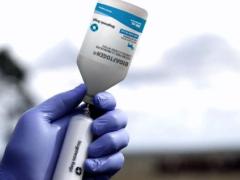South Africa’s automotive industry has been urged to “accelerate collaboration” to achieve localisation, innovation and inclusive transformation in the face of global trade challenges facing the sector.
Addressing the National Association of Automotive Component and Allied Manufacturers Show on August 13 – an event themed around the South African Automotive Masterplan 2035 – Trade, Industry and Competition Minister Parks Tau underscored the industry’s role as “the cornerstone” of the manufacturing economy that contributes 5.2% to GDP and 22.6% of industrial output.
He highlighted the sector’s urgent challenges, including the need to boost sales of locally produced vehicles.
“Domestic sales of locally produced vehicles plummeted to 515 850 units in 2024 – far below the South African Automotive Masterplan 2035 target of 784 509. Importantly, 64% of vehicles sold here are imports, eroding local production scales,” Tau said.
The local automotive industry employs 115 000 people directly with over 80 000 working in component manufacturing.
Tau added that “local content remains stagnant at 39% – well short of the 60% target” of the plan and US tariffs now significantly impact the country’s R28.7 billion automotive exports.
“These pressures have triggered 12 company closures and over 4 000 job losses in two years. The erosion of industrial value of the sector is exemplified by recent suspensions at Mercedes-Benz and other OEMs,” he said.
“Localisation is not merely policy compliance – it is existential. A 5% increase in local content would unlock R30 billion in new procurement, dwarfing the R4.4 billion US export market. To achieve this, we must act collectively to address some of the bottlenecks to growth.”
Tau said his department is reviewing the Automotive Production Development Programme as a comprehensive way of responding to the challenges the sector is facing – and to ensure regular growth in the sector to meet the goals of the masterplan.
Tau also highlighted the role of the Critical Minerals and Metals Strategy, which “will prioritise beneficiating platinum group metals, copper and manganese for high-value new energy vehicle components like fuel cells and batteries”. He cited Isondo Precious Metals’ fuel cell plant in the OR Tambo special economic zone, Johannesburg, as proof of viability.
He said his department is “developing a new industrial policy, which focuses on decarbonisation, digitisation and diversification”.
He praised Eastern Cape pioneers like S4 Integration and Jendamark Automation for demonstrating how AI and automation can future-proof operations – and said Borbet SA’s 20-year solar energy commitment and Malben Engineering’s green steel pilot project align with global trends.
Tau noted the decline in catalytic converter exports – historically the lead sub-sector – due to electric vehicle shifts and Chinese competition.
“We must scale new products – for example, e-axles and thermal systems – and markets, particularly under the Africa Continental Free Trade Area agreement. As such, regional value chains, like Kromberg & Schubert’s wiring harnesses in Botswana for South African assembly, offer templates,” he said.
Amendments to the Automotive Production and Development Programme Phase 2 legislative framework for the inclusion of electric vehicles and associated components has been completed, added Tau.
“The relevant amendments to the existing Automotive Investment Scheme guidelines are being finalised,” he said, adding that the Taxation Laws Amendment Act, gazetted in December 2024, introduced a 150% capital allowance for qualifying investments in electric and hydrogen vehicle production.
Tau said the Automotive Masterplan 2035 target of 130 new black-owned manufacturers is advancing with 26 black-owned medium, small and micro enterprises (MSMEs) exhibiting at the show, supported by the Automotive Industry Transformation Fund and OEM partnerships.
“As you would agree, the pace does need to be hastened. We are hopeful the industry will support the endeavours of the Automotive Industry Transformation Fund that we are pursuing with a view to enhancing overall transformation through enterprise and supplier development funds,” he said.
According to Tau, government is “working hard to eliminate compliance burdens and reduce red tape” inhibiting investment in the automotive sector.
“Our policy response is accelerating and we plan to introduce an Omnibus (General Laws Amendment) Bill, which seeks to fast-track high-impact investments and projects within 90 days,” he said.
“We will also, through the International Trade Administration Commission (ITAC), look at the impact of imports on local production. We want to grow the sector so our first option must not be to wield a stick but rather offer a carrot to these companies to attract more investment. We would also like to encourage the industry to accelerate collaboration. OEMs need to continue to honour local procurement targets and mentor and invest in MSMEs.”













